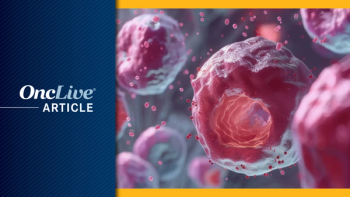
Sylvester Researchers Focus on Understanding Role of H. pylori in Gastric Cancer

Helicobacter pylori infection is a major cause of gastric cancer, and researchers at Sylvester Comprehensive Cancer Center at the University of Miami Miller School of Medicine have several projects underway to better understand the association and develop much-needed prevention and treatment.
“Unfortunately, the five-year survival rate for gastric cancer is about 32% for all stages and as low as 6% for metastatic cancer, which is when these cancers are frequently found in the U.S.,” said Wael El-Rifai, M.D., Ph.D., associate director of basic science and co-leader of the Tumor Biology Program at Sylvester, who received the center’s most recent grant to study H. pylori and gastric cancer. “While gastric cancer rates in the U.S. have declined in recent years, this cancer type remains the fifth most common cancer and the third most common cause of cancer death globally.”
Reports from the World Health Organization, the National Cancer Institute, and epidemiological data have shown that individuals with chronic H. pylori infection are at three to six times greater risk for developing gastric cancer, he said.
In September 2022, Dr. El-Rifai received a Research Project Grant (R01) from the National Institutes of Health (NIH) for $2.2 million over five years, to study the role of Aurora kinase A (AURKA), which Dr. El-Rifai and colleagues have found is overexpressed in about 60% of gastric cancers. R01 grants are awarded to investigators who have special interests or competencies in an area of medicine, and Dr. El-Rifai’s pioneering work in understanding AURKA’s role in carcinogenesis has led to a number of clinical trials targeting AURKA in cancer.
“We identified novel ways in which AURKA promotes survival and expansion of tumorigenic cells in response to H. pylori infection,” Dr. El-Rifai said.
The aims of the new grant are to investigate how AURKA reprograms cells in response to H. pylori infection; determine how AURKA-dependent functions promote gastric cancer and resistance to therapy; and focus on how these findings might translate to therapeutics that target AURKA.
Dr. El-Rifai’s lab at Sylvester has also received an NIH grant, funded until 2026 for $2.4 million, to study the role of cyclin-dependent kinase 1 (CDK1), a well-established cell cycle regulator. Dr. El-Rifai is collaborating with Alexander Zaika, Ph.D., and colleagues at Sylvester to investigate novel functions of CDK1 in gastric cancer cells. Based on their previous findings, they hypothesize that CDK1 induces stem-like properties where activation of the CDK1-SOX9 axis promotes cell survival and expansion of cancer cells in response to H. pylori infection and cancer treatment. This grant will allow Dr. El-Rifai and his research team to understand H. pylori’s role in activating the CDK1-SOX9 axis and how to translate that to therapeutic options.
Fueled by funding from a U.S. Department of Veterans Affairs Merit Review Award, renewed twice since 2012 and active until 2025, Dr. El-Rifai’s lab is studying how fibroblast growth factor receptor 4 (FGFR4), which is associated with a poor prognosis in breast cancer, promotes cancer cell survival and resistance to therapy in gastric cancer.
“Developing new therapeutic targets for gastric cancer is an important issue, especially among U.S. military serving abroad,” Dr. El-Rifai said. “A recent study of U.S. soldiers deployed to the Middle East and Far East suggests that they might be at higher gastric cancer risk, because the incidence of H. pylori infection was 7.3% per year compared to 2.5% among U.S military recruits living at home.”
Special Implications for South Florida
Sylvester researchers have found that South Florida counties have above-average rates of mortality from gastric cancer, according to a
The higher mortality rate from gastric cancer is likely associated with South Florida’s diverse population of immigrants from countries in South America and other places where H. pylori is more common, according to Sylvester researcher and study author David Goldberg, M.D.
To better understand H. pylori’s impact on the South Florida community and gastric cancer rates, Sylvester researcher Shria Kumar, M.D., M.S.C.E., is overseeing two projects, including a community-based research initiative that involves offering an H. pylori breath test on the cancer center’s Game Changer vehicles, as well as at the Miller School’s Department of Community Service (DOCS) community health fair.
“H. pylori, a Class 1 carcinogen, can be detected by endoscopy, stool sample, or by breath test. To reach at-risk people in the community, we are taking this portable breath testing machine out to the community and are testing people who could have an H. pylori infection,” said Dr. Kumar, an assistant professor of clinical medicine, gastroenterology, at the Miller School. “If they have the infection, we will provide medication to treat and eradicate the infection, then have them come back for retesting.”
The Game Changer vehicles provide an optimal strategy to bring cancer prevention to communities often on the fringe of prevention, according to Erin Kobetz, Ph.D., M.P.H., vice provost for research and scholarship and associate director, population sciences and cancer disparity at Sylvester.
“Through Sylvester’s SCAN360 platform, we identified a number of local communities with increased incidence of gastric cancer. We are working with key partners to address this disparity by bringing screening and treatment for H. pylori, the primary risk factor for disease, to those communities. This closes a gap in health care access and also provides critical data to drive innovative and locally relevant translational research,” Dr. Kobetz said.
Sylvester is among the first cancer centers in the nation to study a community-based H. pylori testing initiative. The research will shed light on the prevalence of H. pylori infection in South Florida, as well as the feasibility of community-based testing and eradication, she said.
Dr. Kumar’s other project is a study supported by a Sylvester Intramural Award, which will involve getting H. pylori and tissue samples from patients undergoing endoscopy at the Miller School. The research is in collaboration with Sylvester researchers Dr. Zaika and Elena Zaika, M.S., whose lab focuses on understanding the biological basis of tumorigenic transformation.
“We will identify if they have H. pylori, and if they have precancerous changes of their stomach mucosa. Once you have H. pylori infection, it can progress from normal mucosa to precancerous changes to eventually cancer,” Zaika said. “This study will allow us to identify which patients are at risk for having those precancerous changes, and ultimately cancer.
“Gastric cancer is too rare a cancer to justify population-based prevention like with colonoscopy. You can’t just screen everyone in the U.S. We need to be able to identify which people need to be screened and, once they’re screened, how do we risk stratify them to know if they are at high risk of developing cancer in the future? This study tackles those questions,” she said.



































